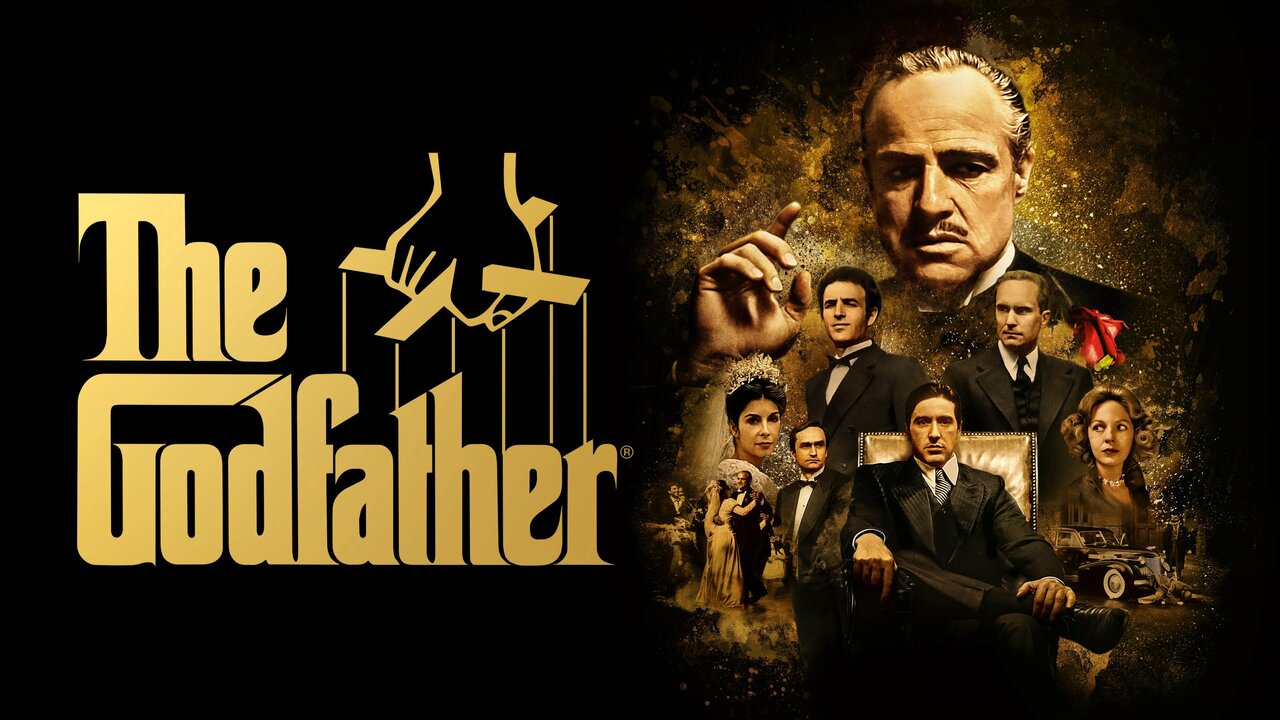
The Godfather, directed by Francis Ford Coppola, is an iconic film that has captivated audiences since its release in 1972. Set in the 1940s and 1950s, this masterpiece of cinema tells the story of the powerful Corleone crime family and their struggles for control in the world of organized crime. Starring Marlon Brando as Vito Corleone, Al Pacino as Michael Corleone, and an ensemble cast of talented actors, The Godfather is known for its gripping storytelling, memorable characters, and unforgettable dialogue. With its exploration of themes such as loyalty, power, and family, the film has cemented its place as one of the greatest movies ever made. In this article, we will delve into 41 fascinating facts about The Godfather that every fan should know. So, grab some cannoli and let’s explore the world of this iconic cinematic masterpiece.
Key Takeaways:
- The Godfather” is a classic movie released in 1972, based on a bestselling novel, and won multiple Academy Awards. It has had a significant impact on pop culture and continues to be studied in film schools.
- The film’s iconic scenes, memorable quotes, and powerful performances have left a lasting legacy, influencing future mobster films and shaping our understanding of organized crime.
The Godfather was released in 1972.
The iconic film, The Godfather, directed by Francis Ford Coppola, was released in 1972 and remains one of the most influential movies in cinematic history.
The Godfather is based on a novel.
The Godfather is based on the bestselling novel by Mario Puzo, who also co-wrote the screenplay for the film.
Marlon Brando’s iconic performance.
Marlon Brando’s portrayal of Don Vito Corleone in The Godfather earned him an Academy Award for Best Actor.
The movie was extremely successful at the box office.
The Godfather grossed over $134 million at the box office upon its initial release, becoming one of the highest-grossing films of all time.
The Godfather won multiple Academy Awards.
The Godfather won the Academy Award for Best Picture, Best Actor, and Best Adapted Screenplay, among other categories.
Coppola initially faced resistance in casting Al Pacino.
Francis Ford Coppola faced opposition when casting Al Pacino as Michael Corleone, as the studio wanted a bigger name for the role.
The famous horse head scene.
The Godfather is known for its iconic horse head scene, where a severed horse head is found in the bed of a Hollywood producer.
The film made the phrase “I’m gonna make him an offer he can’t refuse” famous.
The line “I’m gonna make him an offer he can’t refuse” spoken by Don Vito Corleone became one of the most memorable quotes in movie history.
The Godfather’s influence on pop culture.
The Godfather has had a significant impact on popular culture, inspiring countless parodies, references, and tributes in various forms of media.
The Godfather was selected for preservation in the National Film Registry.
In 1990, The Godfather was chosen for preservation in the United States National Film Registry, recognizing its cultural, historical, and aesthetic significance.
The movie established the Mafia genre.
The Godfather is widely credited with establishing the Mafia genre in American cinema.
The Godfather Part II won six Academy Awards.
The Godfather Part II, the sequel to the original film, won six Academy Awards, including Best Picture and Best Director.
The film’s score is iconic.
The Godfather features a memorable and influential score composed by Nino Rota, which is instantly recognizable.
Famously slow breathing technique.
Marlon Brando developed his character’s trademark slow breathing technique to add depth and intensity to his portrayal of Don Vito Corleone.
The cat in Don Vito Corleone’s lap was unplanned.
The cat in Don Vito Corleone’s lap during the opening scene was entirely unplanned and happened by chance, but it added another layer of mystery and power to the character.
The Godfather’s running time.
The Godfather has a running time of approximately 2 hours and 55 minutes.
Coppola’s dedication to authenticity.
Director Francis Ford Coppola went to great lengths to ensure the authenticity of The Godfather, including consulting real-life gangsters and using actual locations.
The film’s impact on fashion.
The Godfather influenced fashion trends, as the characters’ stylish suits and fedoras became iconic symbols of mobster fashion.
The Godfather’s cultural impact.
The Godfather played a significant role in shaping American popular culture by romanticizing the Italian-American mafia and its associated lifestyle.
The famous restaurant scene was shot in an actual restaurant.
The memorable restaurant scene where Michael Corleone kills Sollozzo and McCluskey was filmed in an authentic Italian restaurant in New York City.
The film’s strong ensemble cast.
The Godfather boasts an exceptional ensemble cast, including Al Pacino, James Caan, Robert Duvall, Diane Keaton, and Talia Shire, among others.
The Godfather’s iconic poster.
The poster for The Godfather, featuring Marlon Brando’s face as Don Vito Corleone surrounded by the words “An offer you can’t refuse,” has become an iconic image in popular culture.
The iconic baptism scene.
The Godfather’s baptism scene, where Michael Corleone becomes the godfather to his sister’s child while his enemies are being brutally eliminated, is considered one of the most powerful sequences in film history.
Puzo and Coppola wrote the screenplay together.
The Godfather’s screenplay was co-written by author Mario Puzo and Francis Ford Coppola, who collaborated closely to bring the story to life on the big screen.
The Godfather’s impact on future mobster films.
The Godfather influenced and paved the way for future mobster films, such as Goodfellas, Casino, and The Sopranos.
The film’s loyalty theme.
The Godfather explores the theme of loyalty, as characters fiercely protect and uphold their family values and honor.
The Godfather’s portrayal of power struggles within families.
The Godfather delves into the inner workings of a powerful crime family, depicting the complex dynamics and power struggles that often arise within these structures.
The film’s distinct visual style.
The Godfather is known for its visually stunning cinematography, which captures the dark and brooding atmosphere of the story.
The film’s critical acclaim.
The Godfather received widespread critical acclaim upon its release and continues to be highly regarded by critics today.
The Godfather’s legacy.
The Godfather’s impact and legacy can still be seen in contemporary cinema, inspiring filmmakers and leaving an indelible mark on the gangster genre.
The film’s memorable quotes.
The Godfather is renowned for its memorable quotes, including “Leave the gun, take the cannoli” and “It’s not personal, it’s strictly business.
The Godfather was not an immediate success in Italy.
Although The Godfather achieved immense success worldwide, it was not initially well-received in Italy due to its portrayal of the Italian-American Mafia.
The film’s influence on real-life mobsters.
The Godfather had such a profound impact that some real-life mobsters claimed it accurately depicted their lives and adopted certain aspects of the film’s mythology.
The Godfather’s symbolic use of oranges.
The Godfather strategically uses oranges as a symbol of impending death or danger, often appearing in scenes preceding a violent event.
The Godfather spawned two sequels.
The Godfather Part II was released in 1974 and The Godfather Part III in 1990, completing the trilogy.
The Godfather is a staple of film education.
The Godfather is often studied in film schools and used as a prime example of masterful storytelling and character development.
The film’s impact on music.
The Godfather’s score, composed by Nino Rota, has become synonymous with Italian-American culture and is frequently used in various forms of media.
The film’s portrayal of the American Dream.
The Godfather explores the corrupting influence of power and wealth, challenging the notion of the American Dream.
The film’s exploration of morality.
The Godfather raises ethical questions and showcases the moral dilemmas faced by the characters in their pursuit of power and survival.
The Godfather’s enduring popularity.
Over four decades after its release, The Godfather continues to captivate audiences and is considered a timeless masterpiece of cinema.
The Godfather’s cultural significance.
The Godfather’s impact extends beyond film, shaping our collective understanding of organized crime and leaving an indelible mark on popular culture.
Conclusion
In conclusion, The Godfather is an iconic and influential movie that has captivated audiences for decades. With its powerful storytelling, memorable characters, and brilliant performances, it has solidified its place in cinema history. The movie’s themes of power, family, and loyalty continue to resonate with viewers, making it a timeless classic. Whether you’re a fan of crime dramas or simply appreciate exceptional filmmaking, The Godfather is a must-watch. So grab some popcorn, settle in, and immerse yourself in the world of organized crime and the Corleone family.
FAQs
Q: Who directed The Godfather?
A: The Godfather was directed by Francis Ford Coppola.
Q: When was The Godfather released?
A: The Godfather was released in 1972.
Q: Who wrote The Godfather?
A: The screenplay for The Godfather was written by Mario Puzo and Francis Ford Coppola.
Q: Who starred in The Godfather?
A: The Godfather starred Marlon Brando, Al Pacino, James Caan, Robert Duvall, and Diane Keaton.
Q: Is The Godfather based on a true story?
A: While the movie draws inspiration from real-life organized crime families, it is not a direct adaptation of any particular true story.
Q: How many Oscars did The Godfather win?
A: The Godfather won three Oscars, including Best Picture, Best Actor (Marlon Brando), and Best Adapted Screenplay.
Q: Are there sequels to The Godfather?
A: Yes, there are two sequels to The Godfather: The Godfather Part II (1974) and The Godfather Part III (1990).
Q: Is The Godfather considered one of the greatest movies of all time?
A: Yes, The Godfather is often regarded as one of the greatest movies ever made, consistently appearing in lists of top films.
Q: Can I watch The Godfather with my family?
A: The Godfather is rated R for strong violence, language, and some sexual content, so it may not be suitable for younger audiences. It is advised to exercise discretion when deciding to watch it with your family.
If you enjoyed learning about "The Godfather," why not explore more cinematic trivia? Uncover the captivating stories behind "3 Godfathers," a classic Western with a heartwarming twist. Or, delve into the life of Lenny Montana, the former wrestler who brought Luca Brasi to life in "The Godfather." From iconic performances to surprising behind-the-scenes facts, there's always more to discover in the world of film.
Was this page helpful?
Our commitment to delivering trustworthy and engaging content is at the heart of what we do. Each fact on our site is contributed by real users like you, bringing a wealth of diverse insights and information. To ensure the highest standards of accuracy and reliability, our dedicated editors meticulously review each submission. This process guarantees that the facts we share are not only fascinating but also credible. Trust in our commitment to quality and authenticity as you explore and learn with us.


